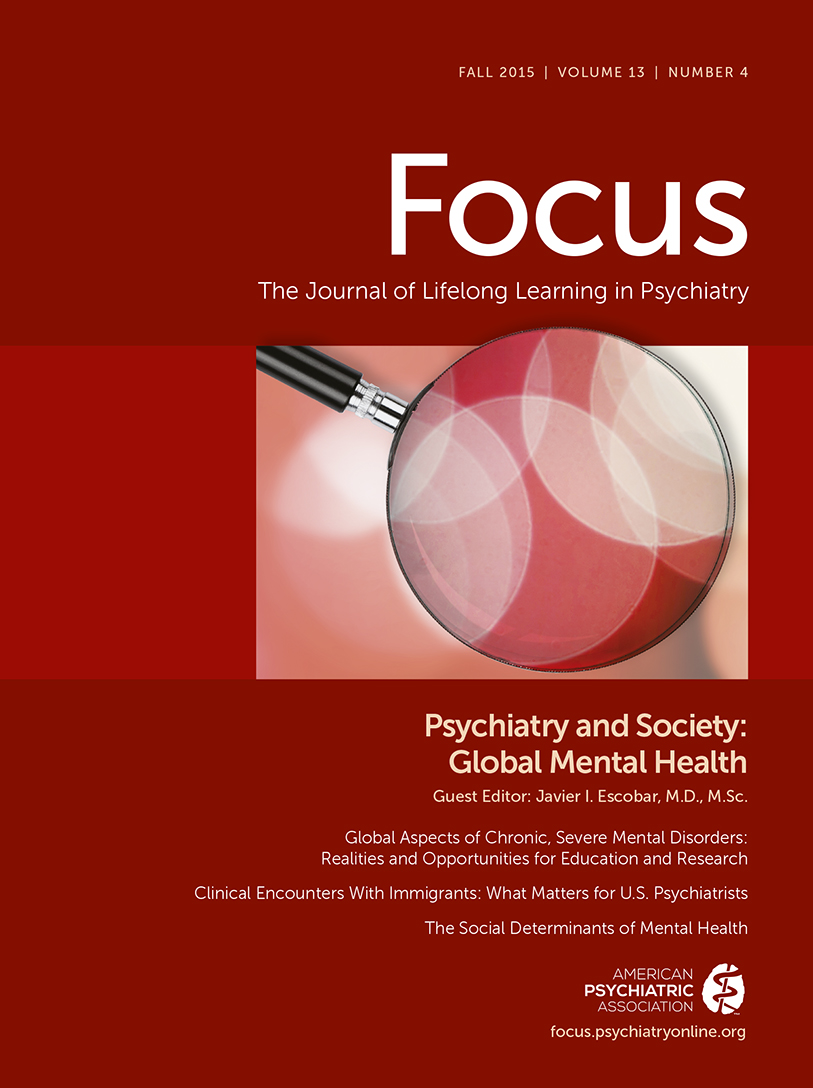Detection, Assessment, and Management of Schizophrenia in an Andean Population of South America: Parkinsonism Testing and Transcranial Ultrasound as Preventive Tools
Abstract
Schizophrenia is a debilitating psychiatric illness that is among the world's top 10 causes of long-term disability, affecting people who are just entering the peak of social, economic, and intellectual productivity. Such functional loss is particularly relevant in indigenous communities, which rely on change in functional status (rather than on the presence of symptoms) to identify mental illness. Particularly among the indigenous communities of Latin America, the gap between mental health need and availability of resources to reduce the burden has been judged “a case of outrageous exclusion.” For more than a decade, as part of the Investigation of Movement Abnormalities and Genetic of Schizophrenia study, the authors have been studying vulnerability markers (genetic, motor, imaging, and neuropsychological differences) for schizophrenia in a remote, indigenous population in rural northern Argentina. In this article, the authors discuss the implementation of a task-shifting paradigm resulting in more proficient identification and referral of individuals with untreated psychosis and a severalfold reduction in the duration of untreated psychosis, with very high retention rates (70%) and treatment adherence during a decade in a rural environment. The authors also propose to use transcranial ultrasound screening and testing for parkinsonism at illness onset before introduction of neuroleptics as potentially useful markers in determining illness severity, negative symptomatology, and tolerance to antipsychotic treatment/refractoriness.



